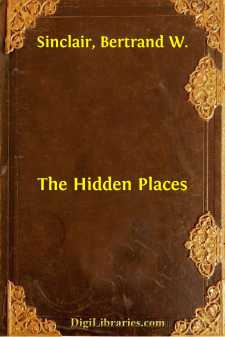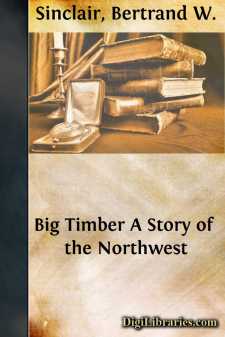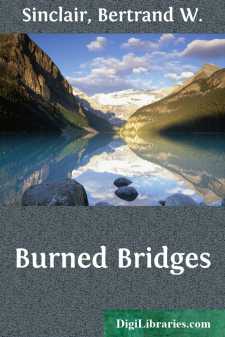Categories
- Antiques & Collectibles 13
- Architecture 36
- Art 48
- Bibles 22
- Biography & Autobiography 813
- Body, Mind & Spirit 142
- Business & Economics 28
- Children's Books 15
- Children's Fiction 12
- Computers 4
- Cooking 94
- Crafts & Hobbies 4
- Drama 346
- Education 46
- Family & Relationships 57
- Fiction 11828
- Games 19
- Gardening 17
- Health & Fitness 34
- History 1377
- House & Home 1
- Humor 147
- Juvenile Fiction 1873
- Juvenile Nonfiction 202
- Language Arts & Disciplines 88
- Law 16
- Literary Collections 686
- Literary Criticism 179
- Mathematics 13
- Medical 41
- Music 40
- Nature 179
- Non-Classifiable 1768
- Performing Arts 7
- Periodicals 1453
- Philosophy 64
- Photography 2
- Poetry 896
- Political Science 203
- Psychology 42
- Reference 154
- Religion 513
- Science 126
- Self-Help 84
- Social Science 81
- Sports & Recreation 34
- Study Aids 3
- Technology & Engineering 59
- Transportation 23
- Travel 463
- True Crime 29
The Hidden Places
Description:
Excerpt
CHAPTER I
Hollister stood in the middle of his room, staring at the door without seeing the door, without seeing the bulky shadow his body cast on the wall in the pale glow of a single droplight. He was seeing everything and seeing nothing; acutely, quiveringly conscious and yet oblivious to his surroundings by reason of the poignancy of his thought.
A feeling not far short of terror had folded itself about him like a shrouding fog.
It had not seized him unaware. For weeks he had seen it looming over him, and he had schooled himself to disregard a great deal which his perception was too acute to misunderstand. He had struggled desperately against the unescapable, recognizing certain significant facts and in the same breath denying their accumulated force in sheer self-defense.
A small dressing-table topped by an oval mirror stood against the wall beside his bed. Hollister took his unseeing gaze off the door with a start, like a man withdrawing his mind from wandering in far places. He sat down before the dressing-table and forced himself to look steadfastly, appraisingly, at the reflection of his face in the mirror—that which had once been a presentable man's countenance.
He shuddered and dropped his eyes. This was a trial he seldom ventured upon. He could not bear that vision long. No one could. That was the fearful implication which made him shrink. He, Robert Hollister, in the flush of manhood, with a body whose symmetry and vigor other men had envied, a mind that functioned alertly, a spirit as nearly indomitable as the spirit of man may be, was like a leper among his own kind; he had become a something that filled other men with pitying dismay when they looked at him, that made women avert their gaze and withdraw from him in spite of pity.
Hollister snapped out the light and threw himself on his bed. He had known physical suffering, the slow, aching hours of tortured flesh, bodily pain that racked him until he had wished for death as a welcome relief. But that had been when the flame of vitality burned low, when the will-to-live had been sapped by bodily stress.
Now the mere animal instinct to live was a compelling force within him. He was young and strong, aching with his desire for life in its fullest sense. And he did not know how he was going to live and endure the manner of life he had to face, a life that held nothing but frustration and denial of all that was necessary to him, which was making him suffer as acutely as he had ever suffered in the field, under the knives of callous surgeons, in the shambles of the front line or the ether-scented dressing stations. There is morphine for a tortured body, but there is no opiate for agony of the spirit, the sharp-toothed pain that stabs at a lonely heart with its invisible lancet.
In the darkness of his room, with all the noisy traffic of a seaport city rumbling under his windows, Hollister lay on his bed and struggled against that terrifying depression which had seized him, that spiritual panic. It was real. It was based upon undeniable reality. He was no more captain of his soul than any man born of woman has ever been when he descends into the dark places. But he knew that he must shake off that feeling, or go mad, or kill himself. One of the three. He had known men to kill themselves for less. He had seen wounded men beg for a weapon to end their pain. He had known men who, after months of convalescence, quitted by their own hand a life that no longer held anything for them.
And it was not because life held out any promise to Hollister that he lived, nor was it a physical, fear of death, nor any moral scruple against self-destruction. He clung to life because instinct was stronger than reason, stronger than any of the appalling facts he encountered and knew he must go on encountering. He had to live, with a past that was no comfort, going on down the pathway of a future which he attempted not to see clearly, because when he did envisage it he was stricken with just such a panic as now overwhelmed him.
To live on and on, a pariah among his fellows because of his disfigurement....




